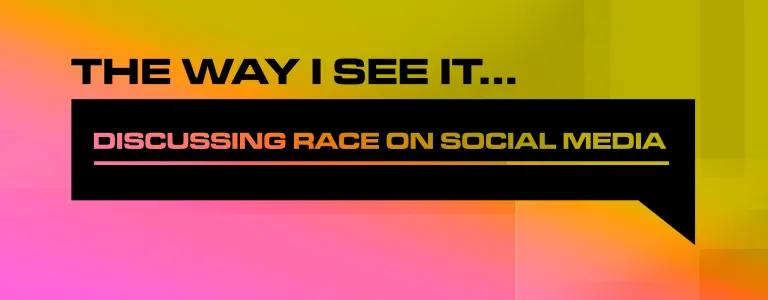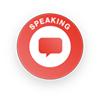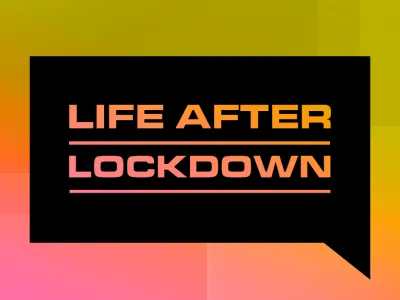
Should We Discuss Race On Social Media?
Include this article in your Skills Builder Journal. It could help you develop... 


When it comes to conversations about race and racial issues, is social media the right platform for these discussions? Is it a good place to mobilise others, voice your thoughts and show support, or does it start unnecessary - and sometimes painful - arguments? NCS Grad Gabrielle lets us know what she thinks...
Social media is not a good platform to discuss race related issues. You need to be in the room.
I think social media is for light interactions, for staying connected to the people around you. As a platform, it’s easy to access and so it’s easy to reach millions of people. You can share your message, share resources, amplify your voice and do right for your cause.
But those strengths are also its downfall.
Social media fails as a platform because we are the ones controlling it. Our profiles are our creation, our chance to choose how we want to be seen by others. Apps like Instagram and Snapchat are useful for discussions especially when it comes to sharing information, but sometimes that’s all we do - share information. Our activism is superficial. We’re aware of how others see us, and so we follow the crowd so we can be seen in a better light. Why would we risk becoming outcasts?
We don’t discuss what’s difficult, we feed into the image we’ve portrayed on social media because that’s easier. We reap the benefits when we see how many followers we’ve gained and how many people have praised our comments. The problems at hand are literally buried under our thumbs, every time we like, share and subscribe. There’s no change, there’s no room for discussion, we just become sheep added to the flock.
Think back to the protests of late May 2020. Protests that were held all over America and in various parts of the world in response to the tragic death of George Floyd. These protests were held to defy police brutality and to call for change, yet there were some who viewed the movement as a chance for a photo op. The likes of influencers such as Kris Schatzel were exposed for posing in front of crowds and boarded up buildings, showcasing their dedication to the cause by showing up…and then promptly walking away once the picture had been taken.
Performative activism is damaging, and what’s so damaging about it is how normal it is. In June of this year, nearly 60% of white adults gave their support online for the Black Lives Matter movement but now that number is fewer than 45%.
Actions will always speak louder than words. In a room with people from different backgrounds, of different perspectives, we have no filter. We have to acknowledge the faces in front of us. Only then will we realise that the conversation is more about the statistics you can list, the case studies you memorise or even the amount of arguments you can win. It’s about the people affected and the people suffering.
Once you’re in the room, it’s how the conversation is handled that matters the most. Debates online are erratic. You have to deal with the overlapping voices, limited word count, short attention span and that’s just to name a few. It’s hard to follow anything. The worst part about these online debates is that they are simply that. Debates. There’s no room for conversation and exchange of ideas. Everyone has their beliefs and they stick to that. They only argue for their side. They only want to prove they are right. Why would they undermine their image by doing the opposite?
This is when face to face interaction is vital.
Firstly, you have the luxury of time when you’re in person. On your phone, you’ll only look through something as long as it interests you before scrolling onto the next online thread that’s easier to keep up with. With the luxury of time and the participants in front of you, you maximise your engagement because you can hear and see the emotion. 93% of communication is conveyed through our body, and cues that can range from the tone of voice to our hand gestures and body language. Being able to recognise the passion, anguish and anger in someone else humanises the conversation, as we are yet again reminded that this is not a trending hashtag, this is a problem hurting people. Within this space, you can follow the conversation, ask questions and broaden your understanding. You have the opportunity to know someone before you decide to ‘cancel’ them, an opportunity that’s hard to come by on the polarised communities of social media platforms.
And as importantly, you are given the space to challenge your beliefs. When others question you, you begin to rethink and question your own stance. You are forced to take a step back to see the flaws and strengths of what it is you actually stand for. You walk away differently.
The filter of social media acts as a barrier. We turn away from what’s actually happening so that we can see what we want to. The truth is uncomfortable, and social media is our place to see something better – to see what we want. However, there is no filter in real life. There is no screen to hide behind or an ‘unfollow’ button to press. What you see is what you get, and once we all realise our reality, we will sit down to have a conversation to alter it.
Do you agree? How do you see the role of social media when it comes to discussions about race? Let us know @NCS!




